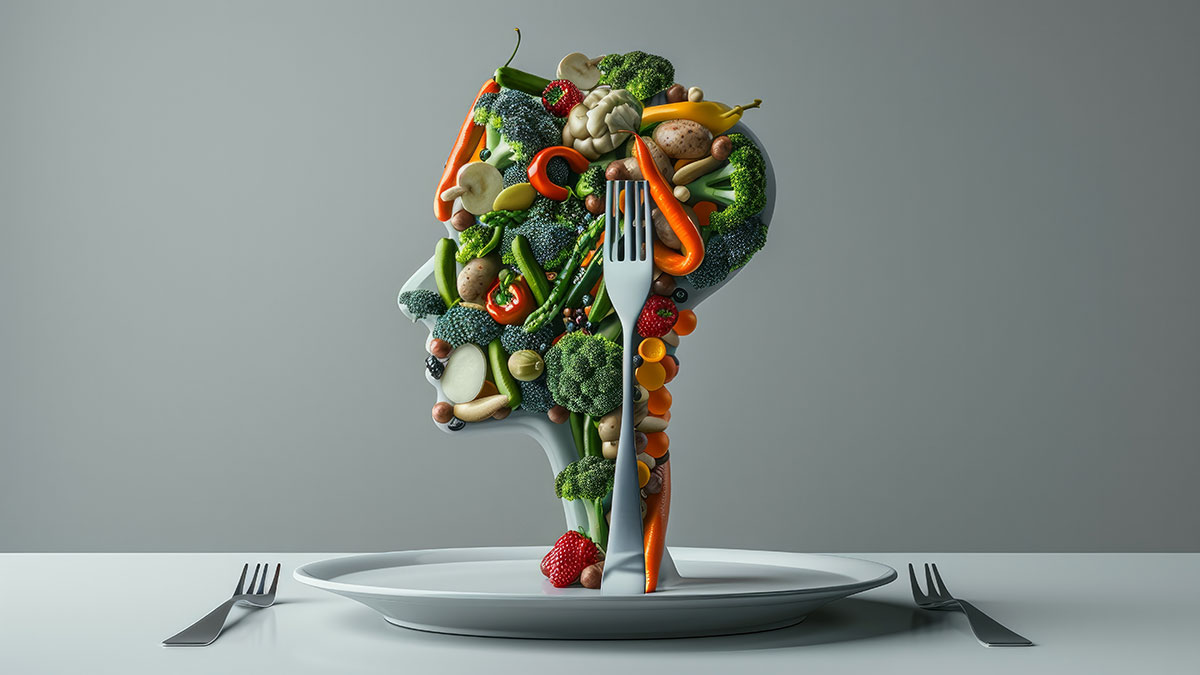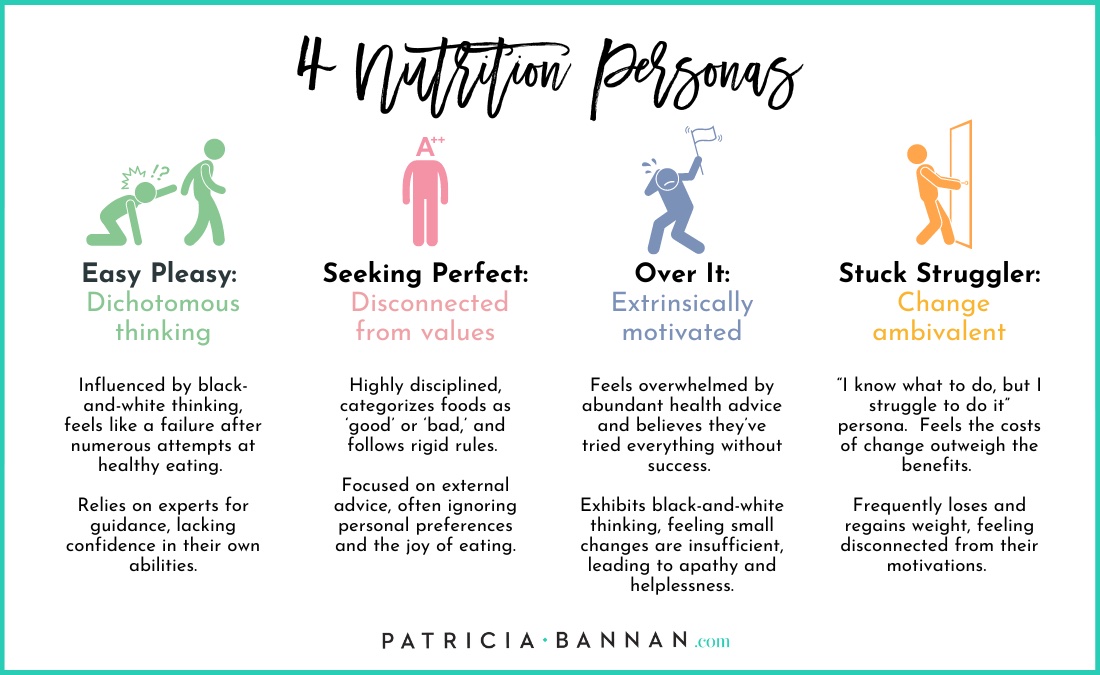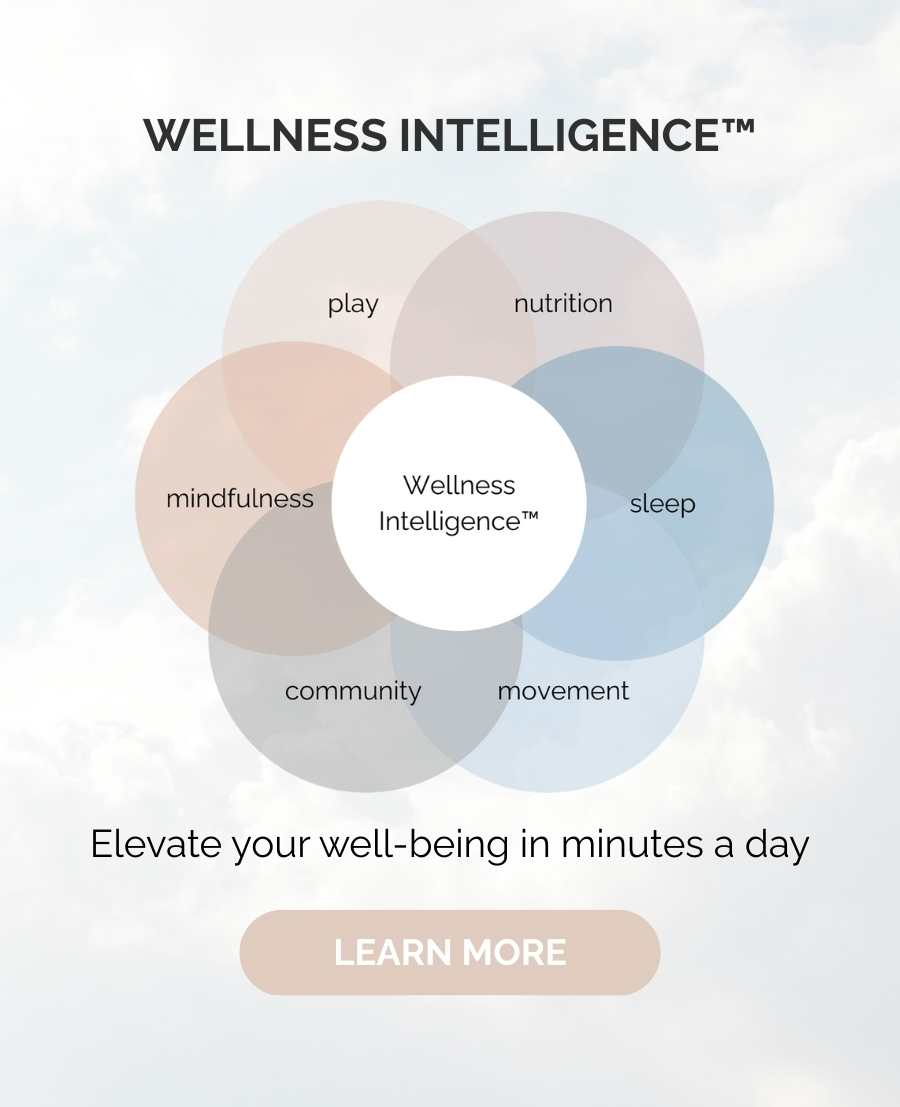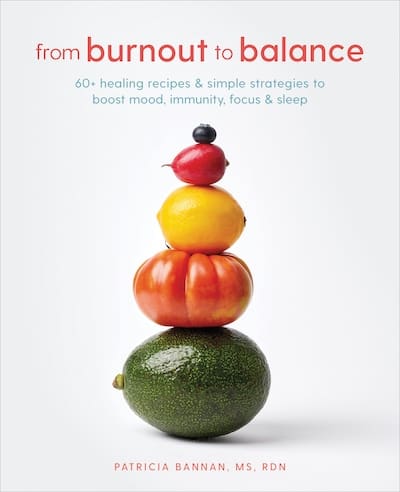Disclosure: This blog is not sponsored, and I received no compensation. The conference I attended where Dr. Crowley spoke had food and nutrition sponsors, including General Mills for Dr. Crowley’s session.
1. How are eating and psychology interconnected?
Dr. Crowley: In the field of nutrition, we often seek the ‘best’ or ‘right’ way to eat, hoping that rigid adherence to a particular approach will yield the desired outcomes. However, when this approach falls short, it can be disheartening.
We tend to fixate on achieving the ‘perfect’ diet, overlooking the valuable insights gained from our personal experiences with food, our environment, upbringing, culture, and individual values. While there’s no one-size-fits-all solution, navigating the best approach for oneself can be challenging.
2. How does the psychology of behavior change impact food choices?

Dr. Crowley: Changing your relationship with food and eating is a complex, nuanced, and deeply personal journey.
To begin, let’s explore some common cognitive tendencies that shape how we process information, think, and make decisions. These tendencies form the foundation of the Nutrition Personas I’ve developed to help you understand yourself and navigate behavior change effectively.
The Foundation of the Nutrition Personas:
- Dichotomous or black-and-white thinking is a cognitive pattern characterized by viewing situations in extreme and polarized terms, lacking a middle ground. This rigid thinking style hampers problem-solving abilities by categorizing things as either ‘good’ or ‘bad,’ ‘right’ or ‘wrong,’ or ‘success’ or ‘failure.’
- Personal values are intrinsic qualities that guide our actions, distinct from goals which are future-oriented desired outcomes. Sustainable behavior change occurs when it aligns with our deeply held values, rather than what we feel we ‘should’ do.
- Extrinsic motivation involves engaging in activities for external rewards rather than inherent enjoyment, such as meeting health goals for external approval or recognition. Self-determination theory suggests that transitioning to intrinsic motivation, driven by personal satisfaction and interest, fosters greater autonomy and control over our lives.
- Motivation for change is often assumed, yet it’s common to feel ambivalent or uncertain about change, grappling with conflicting desires simultaneously. Our readiness to change is influenced by our perceived importance of change and our confidence in our ability to enact it.
3. What are the four Nutrition Personas?
Dr. Crowley: You might find yourself feeling stuck in certain areas despite your desire to improve your health.
I’ve identified these four psychological filters to help illustrate how you may behave when it comes to making changes. While some personas may resonate more with you than others, it’s essential to consider other personal factors as well.
Each of these Nutrition Personas is characterized by a primary filter that influences decision-making:
1. Easy Pleasy: Dichotomous thinking
2. Seeking Perfect: Disconnected from values
3. Over It: Extrinsically motivated
4. Stuck Struggler: Change ambivalent
Let’s explore these personas together and, most importantly, find ways to overcome any obstacles in your path to success!
4. How does someone with an “Easy Pleasy” persona behave?
Dr. Crowley: An Easy Pleasy is highly influenced by black-and-white thinking, feels like a failure after numerous attempts at healthy eating, relies on experts for guidance, and lacks confidence in their abilities.
They seek clear instructions from others believing they will follow them but struggle with long-term change due to a disconnection from their preferences and core values, and a lack of intrinsic motivation.
Questions to identify Easy Pleasy tendencies:
- Are you someone who has tried numerous methods to improve your health but it feels like you’ve failed each time?
- Do you often seek guidance from experts to tell you exactly what to do because you lack confidence in your own ability to make healthy choices?
- Do you prefer having a list of what to eat, even if you haven’t considered whether you actually enjoy or want those foods?
5. How does someone with a “Seeking Perfect” persona behave?
Dr. Crowley: The ‘Seeking Perfect’ persona is highly disciplined and driven by a desire to find the ‘best’ and most ‘perfect’ way to eat, often categorizing foods as ‘good’ or ‘bad’ and focusing on rigid rules and discipline.
They are eager to follow expert advice and say they want to change, but their approach is very focused on the external—what other people say they ‘should’ do—ignoring their preferences and the enjoyment of eating. This perfectionistic mindset gives temporary satisfaction, but they miss out on the pleasure and social aspects of food, making long-term change difficult.
Questions to identify Seeking Perfect tendencies:
- Do you often seek the ‘perfect’ way to eat, categorizing foods as ‘good’ or ‘bad’ and following strict rules and diets?
- Do you feel a sense of satisfaction and control when you stick to your plan, even if it means sacrificing enjoyment?
- Have you considered your own likes, dislikes, and what truly brings you pleasure and joy in eating?
6. How does someone with an “Over It” persona behave?
Dr. Crowley: The ‘Over It’ persona feels overwhelmed and defeated by the abundance of health advice they hear and feels like they’ve tried everything without success. They exhibit black-and-white, catastrophic thinking, believing that small changes are insufficient and that they need dramatic measures beyond what they can do, which leads to feelings of apathy and learned helplessness.
Feeling disconnected from the intrinsic joy of eating and hunger cues, they often blame their appetite for their struggles and hope that external solutions can suppress their appetite so they don’t have to think about food anymore.
Questions to identify Over It tendencies:
- Do you frequently feel overwhelmed by the sheer volume of health advice you’ve encountered, yet haven’t achieved the results you desire?
- Do you believe that only major, sweeping changes would make a difference in your health, dismissing the impact of smaller, incremental changes?
- Do you feel disconnected from the genuine joy and satisfaction that food and eating can bring into your life?
7. How does someone with a “Stuck Struggler” persona behave?
Dr. Crowley: The ‘Stuck Struggler’ is the quintessential “I know what to do, but I struggle to do it” persona. They often feel that the costs of change outweigh the benefits. Caught between a desire to get healthier and an inability to understand why their current habits persist, they frequently lose and regain the same weight, feeling disconnected from their own motivations.
Despite constantly seeking out healthy recipes and ideas, they fail to take action, remaining motivated by external pressures and unable to align their behaviors with their true wants and needs.
Questions to identify Stuck Struggler tendencies:
- Do you often find yourself aware of what you should do to improve your health but struggle to follow through?
- Have you experienced a pattern of making changes, only to revert back to old habits, feeling stuck between the desire to change and uncertainty about why you can’t?
- Do you frequently seek out healthy recipes and ideas from others but struggle to put them into practice or maintain consistency in your actions?
8. How might these Nutrition Personas help someone better understand their relationship with food?
Dr. Crowley: Reflect on these questions to determine if you identify with any of these personas or cognitive tendencies. Consider whether you exhibit dichotomous thinking, feel disconnected from your values, are motivated by external rewards, or are uncertain or ambivalent about change.
Explore the advice provided for motivating each persona and see if it aligns with your approach to behavior change.
9. How can each Nutrition Persona take action for positive food behavior change?
Dr. Crowley: Here are personalized strategies for each persona:
Easy Pleasy
- Break big habits into small manageable steps, starting with small goals to build confidence.
- Reflect on your personal reasons or your ‘why’ for improving your health.
- Challenge the idea of all-or-nothing thinking when it comes to food and eating; explore finding a middle ground.
Seeking Perfect
- Acknowledge that life isn’t about success or failure, but about progress; adopt “Progress not Perfection” as a mantra.
- Practice self-compassion by talking to yourself as if you were your parent, child, or best friend.
- Complete a values inventory to understand your core personal values and align them with your goals.
Over It
- Explore your feelings around hunger, fullness, and appetite, and what you expect from a treatment plan in relation to your biological needs.
- Challenge all-or-nothing thinking and language by seeking balance or ‘gray areas’ in your behavior.
- Complete a values inventory to explore the connection between your actions and your beliefs about yourself.
Stuck Struggler
- Jot down areas you want to change and what you think you ‘should do’; then, write what you would actually be willing to do from that list.
- Reflect on past experiences of success and overcoming challenges.
- Create a decisional balance by drawing four quadrants on a piece of paper and listing the pros and cons of changing and not changing behavior to identify next steps.
10. Anything else you would like to share with an audience of busy professional women?
Dr. Crowley: Remember, much of this work can be done in collaboration with a registered dietitian who has counseling and behavior change experience. If tackling this alone feels overwhelming, seeking help from a professional can provide valuable support.
While psychographic profiling, like personality tests or horoscopes, may offer insights, it’s essential to recognize that we are nuanced individuals. You have your own unique persona, and understanding yourself is key. Trust your instincts and seek guidance when needed!
About Dr. Nina Crowley, PhD, RDN, LD

Dr. Nina Crowley is a Registered Dietitian and PhD Health Psychologist with two decades of experience in obesity care specializing in education and support for body composition analysis for healthcare providers, patients, and organizations. Currently, in her role as Director of Clinical Education and Partnerships for Seca’s Medical Body Composition and Bioimpedance Analysis Division, she collaborates with healthcare providers to advance education on body composition analysis.
Dr. Crowley has significantly contributed to the field through publications, presentations, and media involvement focusing on obesity care, behavior change, policy and advocacy, and body composition. A passionate and committed volunteer and leader, Nina is deeply entrenched in professional associations for dietitians and obesity care providers and serves on the board of directors for the Obesity Action Coalition, working to educate and champion for access to care individuals living with obesity.
She loves connecting on LinkedIn, and you can find her chatting with colleagues on her podcast, “In the Know with Nina.”







